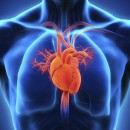-
A common consequence for people who have a stroke is a reduction in their arm function. Various approaches are available to try to help and, in September 2018, the Cochrane Review for one of these, electromechanical and robot‐assisted arm training, was updated by a team of researchers from Germany. We asked lead author, Jan Mehrholz from Dresden...
30 January 2019
-
Cochrane is made up of 13,000 members and over 50,000 supporters who come from more than 130 countries, worldwide. Our volunteers and contributors are researchers, health professionals, patients, carers, people passionate about improving health outcomes for everyone, everywhere.
Cochrane is an incredible community of people who all play...
29 January 2019
-
Cochrane Oral Heath's Joint Co-ordinating Editor, Professor Helen Worthington, has been awarded a John Tomes Medal by the British Dental Association's 2019 Honours and Awards round, for her extensive contributions and influence in promoting evidence-based oral healthcare.
In her role as Director of Evidence for Practice at The University of...
28 January 2019
-
Cochrane is made up of 13,000 members and over 50,000 supporters who come from more than 130 countries, worldwide. Our volunteers and contributors are researchers, health professionals, patients, carers, people passionate about improving health outcomes for everyone, everywhere.
Cochrane is an incredible community of people who all play...
28 January 2019
-
Authors of this new Cochrane review addressed the question, “Do the drugs adrenaline or vasopressin improve survival in cardiac arrest?”Cardiac arrest occurs when someone's heart unexpectedly stops beating. Without any treatment, death occurs within minutes. Treatments that are proven to work in cardiac arrest include cardiopulmonary resuscitation...
28 January 2019
-
Wikipedia, the multilingual encyclopedia, is the world’s largest and most visited online general reference website. It is also one of the most read sources of online medical information by the general public, and it is used by medical students, doctors, and policymakers. Wikipedia has, for years, been virtually in the top five most accessed...
23 January 2019
-
The review 'Adverse events in people taking macrolide antibiotics' asked, “Will people taking a macrolide antibiotic experience more adverse events than those treated with placebo?”Macrolide antibiotics are one of many types of antibiotic. They are commonly used to treat both acute and chronic infections. The four most commonly used macrolides...
21 January 2019
-
We are very pleased to welcome you to the 2019 Cochrane Colloquium to be held in Santiago, Chile on 22 - 25 October 2019 - so mark your calendars! The Cochrane Colloquium is an annual event, bringing people together from around the world to discuss putting research into important global health questions and promoting evidence-informed health care...
17 January 2019
-
When someone has an acute ischemic stroke, urgent and reliable treatments will reduce their risks of disability or dying from their brain tissue damage. The treatments used vary around the world, and a drug called cerebrolysin is widely used in post-Soviet countries, Eastern Europe, Central and Southeast Asia. In April 2017, the latest update of...
17 January 2019
-
Examining evidence for routine scale and polish treatment – an updated review
The Cochrane Review 'Routine scale and polish for periodontal health in adults' was carried out by authors working with Cochrane Oral Health to assess the effects of routine scale and polish treatments for healthy adults and to establish whether different time intervals...
16 January 2019
-
David Tovey, Editor in Chief of the Cochrane Library, responds to a recent article in The BMJ, 'Has Cochrane lost its way?' David Tovey states that; "Cochrane is at its most effective when it adheres to its 10 key principles, which promote a culture that is open, diverse, inclusive and outwards facing, a community that is vibrant and iconoclastic...
15 January 2019
-
Cochrane is made up of 13,000 members and over 50,000 supporters who come from more than 130 countries, worldwide. Our volunteers and contributors are researchers, health professionals, patients, carers, people passionate about improving health outcomes for everyone, everywhere.Cochrane is an incredible community of people who all play their part...
15 January 2019
-
Following consultations in September and October 2018, Cochrane has decided to establish a Cochrane US Network. This US wide Network aims to engage institutions and organizations involved in evidence-informed health care in the US. The call for ‘Expressions of Interest’ to join the Cochrane US Network is now open. This call invites US-based...
14 January 2019
-
The use of pain-relieving drugs during labour is common throughout the world, and an updated Cochrane Review from June 2018 looks at the use of a class of drugs called opioids. Lead author, Lesley Smith from Oxford Brookes University in the UK tells us what they found.
"For many women in labour, an epidural containing a local anaesthetic has...
10 January 2019
-
In this Evidently Cochrane blog, Sarah Chapman looks at the latest evidence on vitamin and mineral supplements for preventing dementia or at least slowing cognitive decline. Can they really help?
I have a clear memory of watching a tv drama with my mum, when I was about fifteen. As we watched a vivid portrayal of a middle-aged woman...
9 January 2019
-
Methodological rigour and impartiality are key attributes of Cochrane reviews. In an era where the validity of research is under scrutiny, the impact of conflicts of interest (COI), real and perceived, cannot be overestimated. It is critical, therefore, that Cochrane has a policy in place to minimize this concern and retain the confidence of all...
7 January 2019
-
Cochrane is made up of 13,000 members and over 50,000 supporters who come from more than 130 countries, worldwide. Our volunteers and contributors are researchers, health professionals, patients, carers, people passionate about improving health outcomes for everyone, everywhere.Cochrane is an incredible community of people who all play their part...
4 January 2019
-
Does very early and active mobilisation improve recovery after stroke?Care in a stroke unit is recommended for people soon after a stroke, and results in an improved chance of surviving, returning home, and regaining independence. Very early mobilisation (helping people to get up out of bed very early, and more often after the onset of stroke...
3 January 2019
-
We recognize the work of Cochrane Nigeria who are supporting national guideline development groups in using Cochrane evidence to develop evidence-based guidelines and to be able to adapt existing guidelines to the Nigerian context. Cochrane Nigeria has been developing skills in how to appraise and adapt existing guidelines using the AGREE II tool...
27 December 2018
-
Which drug is best for reducing excessive blood loss after birth?The aim of this Cochrane Review was to find out which drug is most effective in preventing excessive blood loss at childbirth and has the least side effects. The authors collected and analysed all the relevant studies to answer this question.The review’s lead author Dr Ioannis...
20 December 2018
 A common consequence for people who have a stroke is a reduction in their arm function. Various approaches are available to try to help and, in September 2018, the Cochrane Review for one of these, electromechanical and robot‐assisted arm training, was updated by a team of researchers from Germany. We asked lead author, Jan Mehrholz from Dresden...30 January 2019
A common consequence for people who have a stroke is a reduction in their arm function. Various approaches are available to try to help and, in September 2018, the Cochrane Review for one of these, electromechanical and robot‐assisted arm training, was updated by a team of researchers from Germany. We asked lead author, Jan Mehrholz from Dresden...30 January 2019 Cochrane is made up of 13,000 members and over 50,000 supporters who come from more than 130 countries, worldwide. Our volunteers and contributors are researchers, health professionals, patients, carers, people passionate about improving health outcomes for everyone, everywhere.
Cochrane is made up of 13,000 members and over 50,000 supporters who come from more than 130 countries, worldwide. Our volunteers and contributors are researchers, health professionals, patients, carers, people passionate about improving health outcomes for everyone, everywhere. Cochrane Oral Heath's Joint Co-ordinating Editor, Professor Helen Worthington, has been awarded a John Tomes Medal by the British Dental Association's 2019 Honours and Awards round, for her extensive contributions and influence in promoting evidence-based oral healthcare. In her role as Director of Evidence for Practice at The University of...28 January 2019
Cochrane Oral Heath's Joint Co-ordinating Editor, Professor Helen Worthington, has been awarded a John Tomes Medal by the British Dental Association's 2019 Honours and Awards round, for her extensive contributions and influence in promoting evidence-based oral healthcare. In her role as Director of Evidence for Practice at The University of...28 January 2019 Cochrane is made up of 13,000 members and over 50,000 supporters who come from more than 130 countries, worldwide. Our volunteers and contributors are researchers, health professionals, patients, carers, people passionate about improving health outcomes for everyone, everywhere.
Cochrane is made up of 13,000 members and over 50,000 supporters who come from more than 130 countries, worldwide. Our volunteers and contributors are researchers, health professionals, patients, carers, people passionate about improving health outcomes for everyone, everywhere. Authors of this new Cochrane review addressed the question, “Do the drugs adrenaline or vasopressin improve survival in cardiac arrest?”Cardiac arrest occurs when someone's heart unexpectedly stops beating. Without any treatment, death occurs within minutes. Treatments that are proven to work in cardiac arrest include cardiopulmonary resuscitation...28 January 2019
Authors of this new Cochrane review addressed the question, “Do the drugs adrenaline or vasopressin improve survival in cardiac arrest?”Cardiac arrest occurs when someone's heart unexpectedly stops beating. Without any treatment, death occurs within minutes. Treatments that are proven to work in cardiac arrest include cardiopulmonary resuscitation...28 January 2019 Wikipedia, the multilingual encyclopedia, is the world’s largest and most visited online general reference website. It is also one of the most read sources of online medical information by the general public, and it is used by medical students, doctors, and policymakers. Wikipedia has, for years, been virtually in the top five most accessed...23 January 2019
Wikipedia, the multilingual encyclopedia, is the world’s largest and most visited online general reference website. It is also one of the most read sources of online medical information by the general public, and it is used by medical students, doctors, and policymakers. Wikipedia has, for years, been virtually in the top five most accessed...23 January 2019 The review 'Adverse events in people taking macrolide antibiotics' asked, “Will people taking a macrolide antibiotic experience more adverse events than those treated with placebo?”Macrolide antibiotics are one of many types of antibiotic. They are commonly used to treat both acute and chronic infections. The four most commonly used macrolides...21 January 2019
The review 'Adverse events in people taking macrolide antibiotics' asked, “Will people taking a macrolide antibiotic experience more adverse events than those treated with placebo?”Macrolide antibiotics are one of many types of antibiotic. They are commonly used to treat both acute and chronic infections. The four most commonly used macrolides...21 January 2019 We are very pleased to welcome you to the 2019 Cochrane Colloquium to be held in Santiago, Chile on 22 - 25 October 2019 - so mark your calendars! The Cochrane Colloquium is an annual event, bringing people together from around the world to discuss putting research into important global health questions and promoting evidence-informed health care...17 January 2019
We are very pleased to welcome you to the 2019 Cochrane Colloquium to be held in Santiago, Chile on 22 - 25 October 2019 - so mark your calendars! The Cochrane Colloquium is an annual event, bringing people together from around the world to discuss putting research into important global health questions and promoting evidence-informed health care...17 January 2019 When someone has an acute ischemic stroke, urgent and reliable treatments will reduce their risks of disability or dying from their brain tissue damage. The treatments used vary around the world, and a drug called cerebrolysin is widely used in post-Soviet countries, Eastern Europe, Central and Southeast Asia. In April 2017, the latest update of...17 January 2019
When someone has an acute ischemic stroke, urgent and reliable treatments will reduce their risks of disability or dying from their brain tissue damage. The treatments used vary around the world, and a drug called cerebrolysin is widely used in post-Soviet countries, Eastern Europe, Central and Southeast Asia. In April 2017, the latest update of...17 January 2019 Examining evidence for routine scale and polish treatment – an updated review The Cochrane Review 'Routine scale and polish for periodontal health in adults' was carried out by authors working with Cochrane Oral Health to assess the effects of routine scale and polish treatments for healthy adults and to establish whether different time intervals...16 January 2019
Examining evidence for routine scale and polish treatment – an updated review The Cochrane Review 'Routine scale and polish for periodontal health in adults' was carried out by authors working with Cochrane Oral Health to assess the effects of routine scale and polish treatments for healthy adults and to establish whether different time intervals...16 January 2019 David Tovey, Editor in Chief of the Cochrane Library, responds to a recent article in The BMJ, 'Has Cochrane lost its way?' David Tovey states that; "Cochrane is at its most effective when it adheres to its 10 key principles, which promote a culture that is open, diverse, inclusive and outwards facing, a community that is vibrant and iconoclastic...15 January 2019
David Tovey, Editor in Chief of the Cochrane Library, responds to a recent article in The BMJ, 'Has Cochrane lost its way?' David Tovey states that; "Cochrane is at its most effective when it adheres to its 10 key principles, which promote a culture that is open, diverse, inclusive and outwards facing, a community that is vibrant and iconoclastic...15 January 2019 Cochrane is made up of 13,000 members and over 50,000 supporters who come from more than 130 countries, worldwide. Our volunteers and contributors are researchers, health professionals, patients, carers, people passionate about improving health outcomes for everyone, everywhere.Cochrane is an incredible community of people who all play their part...15 January 2019
Cochrane is made up of 13,000 members and over 50,000 supporters who come from more than 130 countries, worldwide. Our volunteers and contributors are researchers, health professionals, patients, carers, people passionate about improving health outcomes for everyone, everywhere.Cochrane is an incredible community of people who all play their part...15 January 2019 Following consultations in September and October 2018, Cochrane has decided to establish a Cochrane US Network. This US wide Network aims to engage institutions and organizations involved in evidence-informed health care in the US. The call for ‘Expressions of Interest’ to join the Cochrane US Network is now open. This call invites US-based...14 January 2019
Following consultations in September and October 2018, Cochrane has decided to establish a Cochrane US Network. This US wide Network aims to engage institutions and organizations involved in evidence-informed health care in the US. The call for ‘Expressions of Interest’ to join the Cochrane US Network is now open. This call invites US-based...14 January 2019 The use of pain-relieving drugs during labour is common throughout the world, and an updated Cochrane Review from June 2018 looks at the use of a class of drugs called opioids. Lead author, Lesley Smith from Oxford Brookes University in the UK tells us what they found. "For many women in labour, an epidural containing a local anaesthetic has...10 January 2019
The use of pain-relieving drugs during labour is common throughout the world, and an updated Cochrane Review from June 2018 looks at the use of a class of drugs called opioids. Lead author, Lesley Smith from Oxford Brookes University in the UK tells us what they found. "For many women in labour, an epidural containing a local anaesthetic has...10 January 2019 In this Evidently Cochrane blog, Sarah Chapman looks at the latest evidence on vitamin and mineral supplements for preventing dementia or at least slowing cognitive decline. Can they really help?
In this Evidently Cochrane blog, Sarah Chapman looks at the latest evidence on vitamin and mineral supplements for preventing dementia or at least slowing cognitive decline. Can they really help? Methodological rigour and impartiality are key attributes of Cochrane reviews. In an era where the validity of research is under scrutiny, the impact of conflicts of interest (COI), real and perceived, cannot be overestimated. It is critical, therefore, that Cochrane has a policy in place to minimize this concern and retain the confidence of all...7 January 2019
Methodological rigour and impartiality are key attributes of Cochrane reviews. In an era where the validity of research is under scrutiny, the impact of conflicts of interest (COI), real and perceived, cannot be overestimated. It is critical, therefore, that Cochrane has a policy in place to minimize this concern and retain the confidence of all...7 January 2019 Cochrane is made up of 13,000 members and over 50,000 supporters who come from more than 130 countries, worldwide. Our volunteers and contributors are researchers, health professionals, patients, carers, people passionate about improving health outcomes for everyone, everywhere.Cochrane is an incredible community of people who all play their part...4 January 2019
Cochrane is made up of 13,000 members and over 50,000 supporters who come from more than 130 countries, worldwide. Our volunteers and contributors are researchers, health professionals, patients, carers, people passionate about improving health outcomes for everyone, everywhere.Cochrane is an incredible community of people who all play their part...4 January 2019 Does very early and active mobilisation improve recovery after stroke?Care in a stroke unit is recommended for people soon after a stroke, and results in an improved chance of surviving, returning home, and regaining independence. Very early mobilisation (helping people to get up out of bed very early, and more often after the onset of stroke...3 January 2019
Does very early and active mobilisation improve recovery after stroke?Care in a stroke unit is recommended for people soon after a stroke, and results in an improved chance of surviving, returning home, and regaining independence. Very early mobilisation (helping people to get up out of bed very early, and more often after the onset of stroke...3 January 2019 We recognize the work of Cochrane Nigeria who are supporting national guideline development groups in using Cochrane evidence to develop evidence-based guidelines and to be able to adapt existing guidelines to the Nigerian context. Cochrane Nigeria has been developing skills in how to appraise and adapt existing guidelines using the AGREE II tool...27 December 2018
We recognize the work of Cochrane Nigeria who are supporting national guideline development groups in using Cochrane evidence to develop evidence-based guidelines and to be able to adapt existing guidelines to the Nigerian context. Cochrane Nigeria has been developing skills in how to appraise and adapt existing guidelines using the AGREE II tool...27 December 2018 Which drug is best for reducing excessive blood loss after birth?The aim of this Cochrane Review was to find out which drug is most effective in preventing excessive blood loss at childbirth and has the least side effects. The authors collected and analysed all the relevant studies to answer this question.The review’s lead author Dr Ioannis...20 December 2018
Which drug is best for reducing excessive blood loss after birth?The aim of this Cochrane Review was to find out which drug is most effective in preventing excessive blood loss at childbirth and has the least side effects. The authors collected and analysed all the relevant studies to answer this question.The review’s lead author Dr Ioannis...20 December 2018